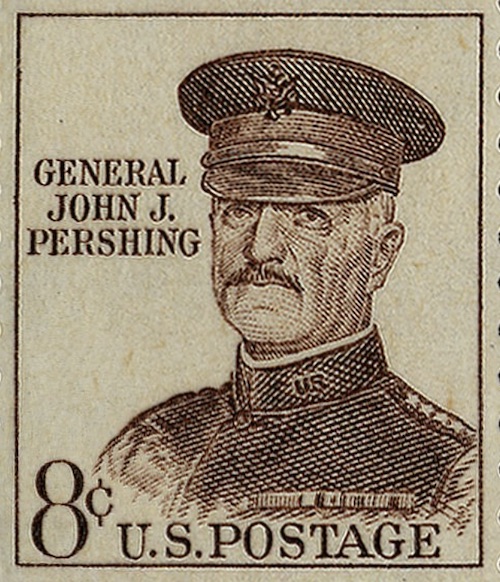People of WWI |
| The Archduke Ferdinand |
| Kaiser Wilhelm II |
| Vladimir Lenin |
| David Lloyd George |
| Georges Clemenceau |
| Eric Ludendorff |
| Sir Douglas Haig |
| Ferdinand Foch |
| Woodrow Wilson |
| John J. Pershing |

John Joseph Pershing was an extraordinary figure in American military history. Renowned for his leadership during World War I and his contributions to the development of modern military tactics, Pershing played a pivotal role in shaping the United States Army into a formidable force.
Early Life and Education
John J. Pershing was born on September 13, 1860, in Laclede, Missouri. He attended the United States Military Academy at West Point, where he excelled both academically and athletically. Pershing graduated in 1886, becoming an officer in the United States Army and earning a commission as a second lieutenant.
Military Career
Pershing's military career encompassed several notable achievements and assignments that solidified his reputation as an exceptional leader. He served in various capacities, including instructor at West Point and participation in the Spanish-American War.
However, it was during his command of the American Expeditionary Forces (AEF) in World War I that Pershing truly left an indelible mark on history. Tasked with organizing, training, and leading American forces on the Western Front, he skillfully integrated American troops into the Allied war effort.
Leadership in World War I
General Pershing's leadership and determination were instrumental in turning the tide of World War I in favor of the Allies. Under his guidance, the AEF played a crucial role in key battles, such as the Battle of Saint-Mihiel and the Meuse-Argonne Offensive, which ultimately led to the defeat of Germany. Pershing insisted that his units remain seperate from the armies of Britain and France, under his command.
Pershing implemented innovative strategies, emphasizing combined arms warfare and the use of tanks, aircraft, and artillery to achieve tactical superiority. His commitment to meticulous planning, careful logistics, and close coordination with Allied forces contributed significantly to the success of the American military campaigns.
Legacy and Contributions
General Pershing's contributions extended beyond his remarkable achievements in World War I. His leadership style and strategic thinking shaped the future of the United States Army. He recognized the importance of professional military education and played a key role in establishing the Command and General Staff College at Fort Leavenworth, Kansas, where officers would receive comprehensive training in military tactics and strategy. He served as the mentor for several prominent generals in World War II including Dwight D. Eisenhower and George C. Patton.
Moreover, Pershing's experiences in the Philippines during the Moro Rebellion influenced his understanding of counterinsurgency operations and guerrilla warfare. His approach to dealing with such conflicts would later serve as a guide for American military leaders facing similar challenges. Pershing is crredited with the disarmament of Filipinos inthe Moro Province, ending the rebellion.
Pershing's dedication and commitment to duty earned him the respect and admiration of his peers and the American public. He was awarded numerous honors and accolades, including the Distinguished Service Cross, the highest award for valor after the Medal of Honor.